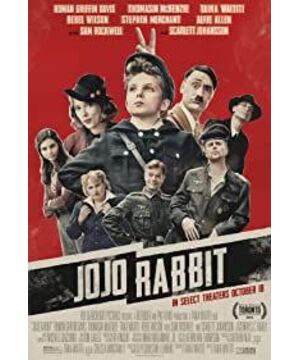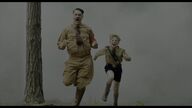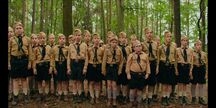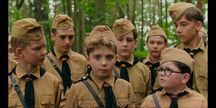[Hong Kong Cinema Viewing] It is quite coincidental that this year's new film that hit the Oscars has the same creative style as the "Beautiful Life" that swept Cannes and Oscars 20 years ago. It just so happens that this Italian film is also being re-screened recently. Both of the two works used comedy to shoot Nazi themes in World War II in a different way, and the directors of the two works personally performed important roles in the play. Both directors have their own unique comedy performance styles, which makes this traditional sense deeply depressing. The theme glows with a different kind of color.
However, compared to the touching father-son relationship and the mixed expression of extreme emotional conflicts in "A Beautiful Life", this work is more like a warm version of "The Tin Drum" or Wes Anderson's World War II comic book. People book. He did not deny the director's ambition and sincerity in the slightest. He wanted to use comedic methods to show the cruel persecution and extermination of Jews by the Nazis during World War II. However, this form of expression was too safe and conservative, gentle enough to criticize. In "Life Is Beautiful", although the father cheated his son to play a game in the concentration camp, the director did not shy away from showing the true conditions of the concentration camp. In this work, there are many candy-colored fantasy scenes that make the audience unable to feel the horrible atmosphere of the social environment, and the true sense of history gradually disappears, except for the scenes of dead bodies hanging on the street in the front and back scenes, which have a slightly finishing touch. The rest of the comedy episodes are either dramatized plots full of humor (Nazi officers go to the boy’s house to search while the Jewish girl pretends to be a sister), or Hitler’s role that appears from time to time in the boy’s fantasy. The actual connection is just a harlequin winking. In general, the whole work is still an absurd comedy of war that caters to Hollywood tastes, and it is far from being able to display the power of reflection and criticism with tears in laughter, although the director's efforts to change the narrative tone can be seen in the last few scenes.
View more about Jojo Rabbit reviews











